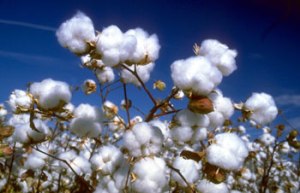Washable nappies, organic clothing for children, baby carriers and slings
Washable nappies, organic clothing for children, baby carriers and slings
Many chemicals are generally used for cotton cultivation: synthetic fertilisers, growth stimulators and pesticides. Worldwide, 22.5% of insecticides used in agriculture are used for cotton. Monoculture cultivation promotes the development of forms of resistance to pesticides by weeds and pests, so that the farmer is always having to increase the dose by establishing a vicious circle harmful to the environment and health. Prolonged exposure to chemicals without adequate means of protection causes numerous forms of farmers’ intoxication and contamination of food and water. The increasing use of pesticides also raises production costs without guaranteeing a similar increase in revenues: in India there are sadly many cases of suicide among cotton farmers (more than 40,000 farmers between 1996 and 2006), prisoners of debt contracted to buy pesticides, fertilizers and transgenic cotton seeds.
Cotton requires large quantities of water for its growth, in the case of intensive crops this can damage the environment if it is monopolized by cotton in areas of low rainfall.
(From an article by Vandana Shiva that appeared in Il Manifesto on March 18, 2006)
“The killing seeds of the biotechnology industry kill biodiversity, farmers and people’s freedom. These include Monsanto’s Bt.Cotton, which has already driven thousands of Indian farmers to debt, despair and death. Bt.Cotton, a genetically modified cotton sold by Monsanto, has repeatedly disappointed Indian farmers (…): it promised farmers a production of 15 quintals per acre and about 226 dollars in additional earnings, for a large number of farmers caused the loss of entire harvests. Many others have had average harvests of only three quintals per acre. Bt.Cotton seeds cost farmers $36 per acre, organic grower seeds only $10 per acre. Bt.Cotton has been treated with pesticides that are sprayed three and a half times, at a cost of 59 dollars per acre. Organic farmers, on the other hand, have used ecological substances that cost less than nine dollars per acre.”
In the seeds of Bt.Cotton have been inserted genes that produce toxins harmful to insects in the family of lepidoptera. So it’s a transgenic cotton that should be a remedy against the massive use of insecticides in the cultivation of cotton, also increasing its yields. The conclusions of the studies on the use of this cotton often give opposite results and vary from zone to zone and from season to season. However, another social and cultural issue must also be considered: the use of transgenic cotton forces the farmer to buy a new batch of seed each year, causing the farmers to become dependent on the agrochemical multinationals; there is also the risk of contamination of traditional varieties by transgenic plants. Vandana Shiva continues: “We will not be enslaved by the giants of genetics. We will not allow their killer seeds to kill our farmers and our freedoms. We will continue to preserve our seeds as a duty to creation and to our communities. We will spread “GMO-free” areas as areas of our biodiversity and our food freedom. We will spread seeds of peace and stop the spread of seeds of death”.

I got this information from an interesting and documented volume: Cotton on the skin. Agriculture, environment, work, market for the dirtiest product in the world. Edited by Paola Placido and Simonetta Lorigliola, Serie I dossier Ctm Altromercato/11, June 2006.
The organic cotton used for Popolini and Iobio products comes from Turkey, while the production is in Hungary (visit the factory!).
Go to organic cotton clothing for children in Pannolinofelice e-shop.
RELATED ARTICLES
Write your comment
By using the site, you accept our use of cookies. more information
This site uses cookies to provide the best browsing experience possible. By continuing to use this site without changing your cookie settings or by clicking on "Accept" you allow their use.